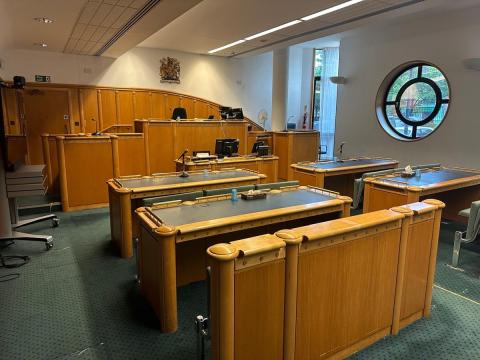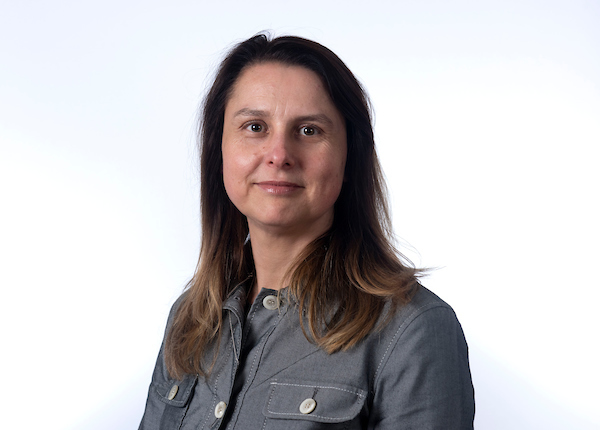Reflections from a visit to the combined courts

Dr Francine Ryan, Director of the Open Justice Centre and Senior Lecturer in Law discusses her visit to the Combined Courts.
Last month, I had the privilege of spending two days sitting with one of the District Judges at a County Court in the North of England hearing family and civil cases. It was an informative and an eye-opening experience where I got to see first-hand what is happening in our courts and to witness the struggles people are having in accessing the legal system.
As a former practitioner I used to attend court on a regular basis, but since moving into academia I have not appeared in court for several years, so it was really useful experience to go back and see whether things have changed. I was reassured that it all still looked very familiar and the formality that underpins the court process remains the same. But what I saw was a noticeable increase in the number of people representing themselves and how that places extra demands on judges and the court system. People representing themselves often lack legal knowledge and the confidence to effectively prepare and present their case. Many cases find their way to court because the parties lack legal representation, and they struggle to resolve the issues on their own. This means that sometimes judges are unnecessarily hearing cases and it is increasing the burden on the court system. What I saw confirmed that there continues to be a pressing need for accessible legal support that includes resources in plain English to help people accessing the legal system to better understand the legal process.
I am writing this blog post as part of Open Justice week where we showcase the incredible work of our law students who have been involved in different ways supporting access to justice. Through the Open Justice projects our students are working to democratise legal knowledge to empower people to have a better understanding of their legal rights and responsibilities. The Open University Law School is committed to promoting access to justice, and developing projects that enhance the practical skills of our law students whilst providing a deep understanding of the relationship between law and society and contributing to the public good.
One of the projects I lead is the Open Justice Legal Tech project where students develop legal chatbots. This project involves students designing and creating chatbots using the software platform Josef. The chatbots are designed to help people with basic legal information and create documents they require for their legal case. Students are combining their knowledge of the law with cutting-edge technology that not only enhances their technical and research skills, but also makes them aware of the importance and challenge of providing legal information in an accessible and user-friendly way. This year students have created a range of legal chatbots including helping to resolve parking fines, supporting people to understand the rules around Bristol’s Clean Air Zone, helping people purchase a home, providing guidance on the law surrounding pets, and addressing areas of employment and family law. Students choose their own topic for their legal chatbot, conduct detailed research and using Josef build their chatbot. It is fascinating to see the depth and breadth of the legal chatbots that have been developed.
The Open Justice Legal Tech project demonstrates the potential of technology to support access to justice and legal chatbots are one way to leverage technology to provide accessible legal information at scale. However, access to justice is complex and we must recognise that not everyone has access to or is confident in using technology. We need to encourage a responsible and balanced approach to the use of technology and this is particularly important with the launch of open access generative AI (GenAI) tools such as ChatGPT. I discussed in a recent article I co-wrote for the The Conversation how using GenAI tools for legal advice can result in out of date, incorrect and misleading information and that it is vital we encourage people to exercise caution in their use . Circling back to my visit to court I am concerned that the increasingly number of people representing themselves in legal matters might lead to people feeling they have no choice but to use GenAI tools. It is therefore even more pressing that we signpost people to trusted sources of help such as Citizens Advice and we have conversations around how these tools are used ethically and responsibly. We will continue to provide Open Justice projects that support to students to develop trusted user-friendly legal resources that promote the public understanding of law.

Francine Ryan
Francine Ryan is a qualified solicitor, Senior Lecturer in Law and Director of the Open Justice Centre at The Open University.
Francine has worked to develop a range of innovative and technology-enhanced opportunities for OU law students including the Open Justice Online Law Clinic.
Francine’s research areas are in technology and the law.
